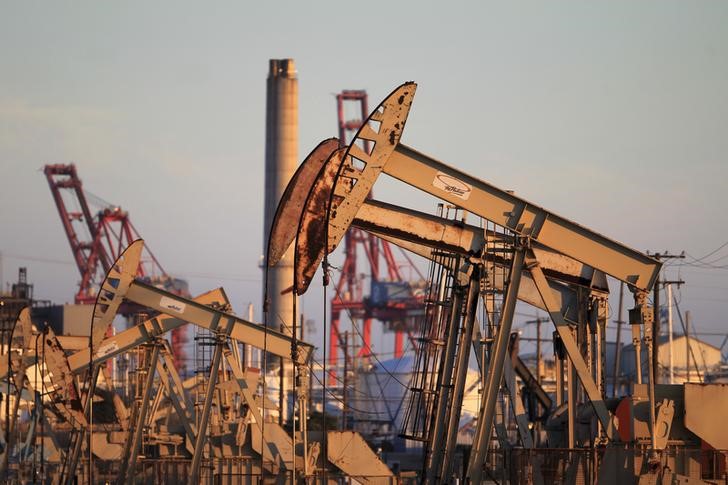Investing.com - Crude oil prices gained on Friday in Asia as China August trade data was supportive in yuan terms though overall dollar figures showed a dip from July.
On the New York Mercantile Exchange crude futures for October delivery rose by 0.22% to $49.20 a barrel, while on London's Intercontinental Exchange, Brent gained 0.31% to $54.66 a barrel.
China's trade balance data came in at a surplus of $41.99 billion, narrower than the $48.6 billion expected for August. Imports jumped 13.3%, better than the 10% gain seen, while exports rose 5.5%, compared to a gain of 6.0% expected.
China said oil imports in August reached 33.98 million metric tons, down from 34.74 million metric tons in July.
Earlier, China reported yuan-denominated exports gained 14.4% oon year and rose 6.9% on month for an August for a trade balance surplus of CNY 286. billion.
Crude oil imports rose 12.2% to 281 million metric tons in the period.
Overnight, crude oil prices settled lower on Thursday, after data showed U.S. supplies of crude oil rose for the first time in ten weeks, as several refinery shutdowns last week due to storm Harvey lowered demand for crude.
A report from the Energy Information Administration (EIA) showed crude stockpiles rose more than expected last week offsetting recent optimism on oil prices which has seen crude futures settle higher for three-straight days.
Inventories of U.S. crude rose by roughly 4.6m barrels in the week ended Sept. 1, missing expectations of a rise of about only 4m barrels. It was the first weekly build in crude stockpiles for ten weeks.
Gasoline inventories, one of the products that crude is refined into, fell by roughly 3.2m barrels, missing expectations of a draw of 5m barrels while distillate stockpiles fell by 1.4m barrels, below expectations of a decline of 3m barrels.
The build in crude stockpiles comes after heavy flooding due to storm Harvey knocked out nearly quarter of the U.S. refining capacity last week, lowering demand for crude oil, the primary input at refineries.
Crude-oil refinery inputs fell by 3.3 million barrels a day last week, to average 14.5 million barrels a day, while refineries operated at just 79.7% of capacity, the EIA said.
Analysts expect the fallout from storm Harvey will continue to weigh on crude stockpiles as refiners have been slow to restart operations while the end of the summer driving season is traditionally associated with a dip in crude oil demand.
